Innovety has been at the forefront of shaping national innovation strategies, ecosystem maps, and cluster development roadmaps across Egypt, Lebanon, Jordan, and the UAE. Our work has supported ministries, councils, and international donors to strengthen research-to-market pipelines, foster academia–industry collaboration, and position countries for global competitiveness. We have designed national innovation and IP strategies, mapped full ecosystems in ICT, education, agrifood, and fisheries, and developed industrial innovation action plans aligned with Vision 2030 agendas. Projects like Lebanon Innovate, STDF, and MCIT’s ICT Innovation Strategy have created actionable frameworks that close gaps in IP, funding, and commercialization.
Our beneficiaries include government ministries, export councils, universities, industry clusters, and development partners seeking to align policy with global best practices while enabling local impact. By combining ecosystem mapping, strategy design, and cluster revitalization, Innovety has delivered actionable roadmaps that de-risk policymaking, attract investment, and create inclusive growth opportunities.
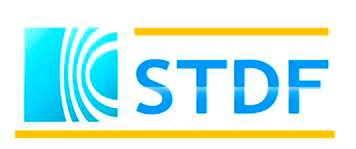
Commissioned by the Science & Technology Development Fund (STDF), this project sought to strengthen Egypt’s innovation ecosystem by addressing gaps in the research-to-market pipeline. The aim was to enhance technology transfer, IP management, and academia–industry collaboration to accelerate commercialization and drive sustainable innovation growth.
We reviewed innovation models, funding mechanisms, and technology transfer practices, conducting a detailed gap analysis of research-to-market activities. Stakeholder consultations informed actionable solutions, resulting in a strategic roadmap to close funding, IP, and collaboration gaps.

In partnership with Terre des Hommes, Innovety implemented a regional project across Egypt, Lebanon, and Jordan to address systemic challenges in juvenile justice and child migration. The project aimed to harness ICT solutions to close service gaps, improve humanitarian interventions, and develop an actionable roadmap for leveraging technology in Tdh’s programs.
Innovety did a comprehensive mapping of regional players in juvenile justice and child migration, assessed program gaps and beneficiary needs, and designed ICT-inspired strategic recommendations. We then developed a structured, actionable plan to guide the deployment of technology-driven solutions that directly address the identified gaps.
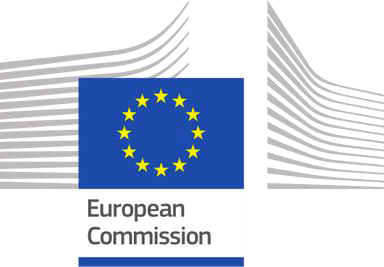
Lebanon’s innovation ecosystem was destabilized by the 2019 financial collapse, COVID-19, and the Beirut port explosion, disrupting industry–research collaboration and technology transfer. The Lebanon Innovate project sought to restore these linkages, strengthen IP and commercialization systems, and drive recovery by fostering stronger partnerships between universities, research centers, and industries.
Mapped the national ecosystem, assessed BSOs, and designed frameworks for Knowledge & Innovation Communities (KICs). Innovety supported universities with new IP policies, revamped the LIRA program, and delivered training for executives, R&D teams, and TTOs. A business model for a knowledge hub was created to enable long-term Lebanese–European collaboration.
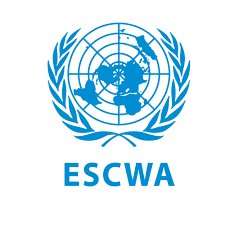
MENA innovation ecosystems face systemic gaps, including limited TTO–industry–policy collaboration and weak research commercialization. ESCWA Technology Centre sought to establish Knowledge and Innovation Centres (KICs) in Egypt, Jordan, and Lebanon to strengthen technology transfer networks, link research to markets, and align national innovation with regional sustainable development goals.
Conducted socio-economic and technology transfer gap analyses, engaged stakeholders via workshops and roundtables, and mapped TTO operational models. Designed a governance and business framework for regional KICs, including a national technology repository, validated with policymakers, research institutes, and industry leaders.
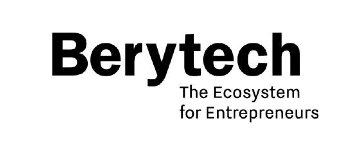
Lebanon’s agriculture and agri-food sectors contribute are key sectors but face persistent structural challenges, worsened by the 2020 economic collapse, Beirut Port explosion, and COVID-19. Berytech and the Netherlands Embassy established QOOT to drive sector growth, engaging Innovety to identify gaps, define five-year strategic directions, and design the operational phase for its business units.
Applied an innovation-driven strategy process, starting with a status assessment and SWOT analysis, then mapping trends, competitors, and opportunities. Generated, validated, and prioritized concepts into a consolidated set of initiatives, transformed into a five-year plan with detailed operational roadmaps for QOOT’s business units.

This project assessed the market potential and investment feasibility of Egypt’s media and media-tech industries. It aimed to provide actionable insights into opportunities, challenges, and business models that could transform Egypt into a hub for media-tech innovation while guiding investment decisions with data-backed recommendations.
We conducted in-depth primary and secondary research, benchmarking Egypt’s media sector against global and regional best practices. Through gap analysis, financial modeling, and organizational feasibility assessments, we identified scalable business and investment models tailored to Egypt’s evolving media-tech landscape.
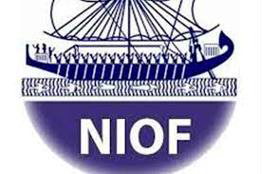
The EU-funded FORCE project aimed to strengthen NIOF’s capacity for sustainable fisheries and aquaculture development in Egypt and the Mediterranean. Innovety developed a research valorization strategy to enhance knowledge transfer, foster collaboration with EU institutions, and support policy implementation aligned with Horizon 2020 and EU Marine Strategies.
Conducted extensive interviews, document reviews, and background research, followed by data analysis and lessons learned to create actionable strategies. The work culminated in a strategic plan with clear action steps and funding alternatives to ensure long-term research valorization and sustainability.
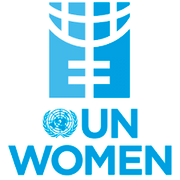
The Papyrus Cluster in Qaramos, a village deeply dependent on papyrus production, suffered a steep decline in demand largely due to the drop in tourism. This impacted the livelihoods of artisans. Innovety was engaged to revitalize the industry by assessing market potential, equipping stakeholders with essential business skills, and developing a comprehensive marketing and financing strategy to ensure long‑term sustainability.
Conducted a full value chain analysis to assess growth gaps, delivered practical training in digital marketing, e‑commerce, and product innovation, and developed a comprehensive marketing strategy with a one‑year action plan. Business matchmaking events connected artisans to local and international buyers, while innovative financing options like crowdfunding and micro‑loans strengthened sustainability.
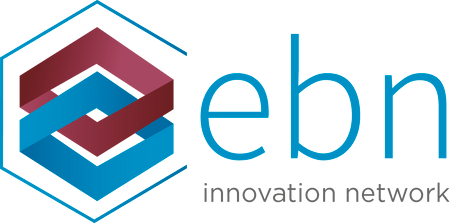
Innovety partnered with the European Business Network to address gaps in Egypt’s innovation and IP ecosystem, including fragmented policies, low IP utilization, and weak cross-sector collaboration. The goal was to align policies, boost IP awareness, and strengthen links between government, academia, and industry.
Conducted a detailed analysis of Egypt’s innovation and IP landscape, engaging key stakeholders to identify barriers and opportunities. Leveraging global best practices, developed a national innovation and IP framework with tailored education programs and policy recommendations to ensure adoption and lasting impact.

Egyptian universities and research institutions needed a practical framework to transform research outputs into market-ready solutions. The project aimed to create a roadmap for research valorization, focusing on technology transfer, intellectual property management, and spin-off development to strengthen industry-academia collaboration and drive economic growth.
Innovety analyzed global innovation cycles, mapped Egypt’s current research-to-market landscape, and identified gaps in technology transfer practices. Our approach involved benchmarking best practices, mapping enabling entities, and designing an actionable roadmap to enhance university technology transfer capabilities and ensure their financial sustainability.

Lebanon’s universities faced barriers to innovation, including limited commercialization funding, weak IP policies, minimal industry links, and underdeveloped technology transfer systems. The project aimed to establish robust processes, equip researchers with innovation tools, and pilot best practices to strengthen commercialization capacity.
Mapped Lebanon’s innovation ecosystem, benchmarking against global models to identify gaps. Developed tailored technology transfer frameworks, designed commercialization roadmaps, and delivered actionable recommendations. Piloted the approach across five universities for relevance and scalability.

To strengthen global competitiveness, the UAE government sought to foster innovation and entrepreneurship in educational institutions. The project assessed and benchmarked I&E ecosystems in universities and high schools, identified key barriers, and provided recommendations to create an enabling environment for innovation-driven learning.
Evaluated the I&E landscape across UAE’s higher education and school systems, benchmarking against global best practices. Applied a tailored framework to analyze barriers, capture insights, and co-develop solutions with stakeholders. Produced a detailed roadmap to guide ecosystem improvements.
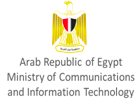
To position Egypt as a global innovation leader, MCIT aimed to develop a national innovation strategy for the ICT sector. Leveraging digital readiness and past successes, the goal was to create a framework to stimulate innovation, support entrepreneurship, and promote IP creation across the ICT landscape.
We conducted a national innovation assessment using research, SWOT analysis, and global benchmarking. Based on these insights, we co-developed a five-pillar strategy and 10-year roadmap, including innovation audits, IP exchange mechanisms, SME support schemes, and an operational model for TIEC.
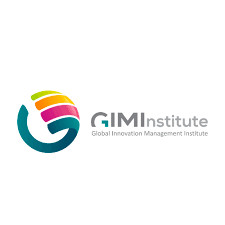
Commissioned by GIMI, this project aimed to map Egypt’s innovation ecosystem, providing a clear picture of its key players, institutional frameworks, and growth barriers. The objective was to generate actionable insights that foster collaboration among government, academia, and the private sector, while identifying opportunities for international partnerships and investment.
Innovety conducted an in-depth mapping exercise combining surveys, interviews, and roundtables with government entities, research institutions, accelerators, and private-sector leaders. This was paired with gap analysis and benchmarking against global innovation ecosystems, enabling us to identify collaboration opportunities and provide strategic recommendations for ecosystem strengthening.

Supporting the Ministry of Trade, Industry, and Small and Medium Enterprises (MTISME), this project aimed to map Egypt’s business innovation and technology commercialization ecosystem and design a National Industrial Innovation Strategy. The strategy sought to address ecosystem gaps, enhance local manufacturing, and drive sustainable industrial growth aligned with Egypt’s Vision 2030.
Conducted a comprehensive survey of 150 ecosystem players, combining qualitative and quantitative research to map key actors, assess gaps, and define opportunities. Insights were translated into a strategic framework structured around six pillars of industrial innovation, with actionable policy recommendations developed through close stakeholder engagement.

The Ministry of Trade and Industry sought to transform Egypt’s industrial innovation. The Industrial Innovation Action Plan aimed to create a collaborative peer‑partnership approach between industry and academia. The goal was to develop a framework with actionable steps to enhance industrial innovation and technology transfer in Egypt.
Mapped Egypt’s innovation and technology transfer ecosystem, engaging ministries, industry, and academia through consultations, study tours, and taskforce workshops. Insights shaped a prioritized industrial innovation strategy ready for immediate implementation.
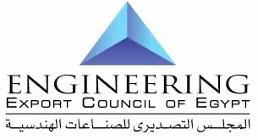
To help achieve its USD 5 billion export target, the Engineering Export Council of Egypt (EEEC) aimed to boost the global visibility of its 250 members. The goal was to develop a comprehensive member database and an interactive virtual exhibition, enabling international buyers to easily discover and connect with Egyptian engineering companies.
Collected detailed company data through field visits, interviews, and surveys, creating a searchable database by type, products, and export capabilities. Designed and launched a 3D virtual exhibition to showcase products interactively, while establishing a scalable system for ongoing updates and future growth.
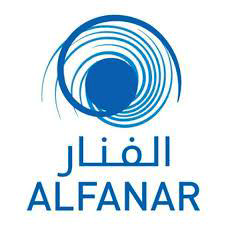
Funded by Alfanar and sponsored by SODIC, this project aimed to map Egypt’s education ecosystem to identify social enterprises improving children’s education in underserved communities. The goal was to inform Alfanar’s investment decisions by rating organizations on impact, sustainability, and efficiency.
Innovety conducted a desk review, stakeholder interviews, and surveys across multiple governorates. Using both digital and offline channels, the team gathered data and applied Alfanar’s criteria to analyze and categorize education-focused social enterprises.